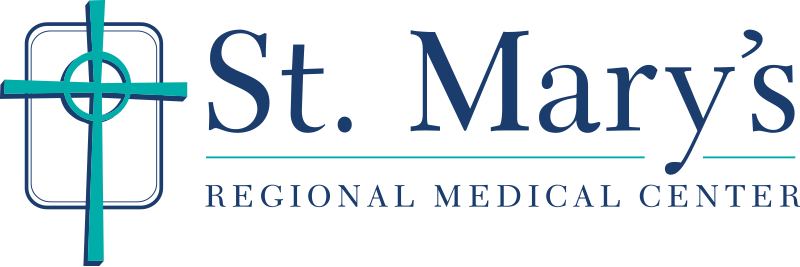Treating Speech and Language Disorders After Stroke and Other Injury
The Speech and Language Pathology Department at St. Mary's Regional Medical Center focuses on evaluating, treating and managing both adults and children with disorders of speech, voice, language, cognition, memory or swallowing. The staff works with a variety of specialties, including: neurosciences, otolaryngology (ear, nose and throat), radiology, oncology and general medicine.
To find a healthcare professional associated with our Speech and Language Pathology Department, call our free physician referral service at 580-249-3741.
Speech and Language Pathology services are available both on an outpatient and inpatient basis. Patients in both settings receive an individualized treatment plan that focuses on establishing or reestablishing optimal communication. People with the following conditions may benefit from the expertise of a speech-language pathologist:
- Stroke
- Brain tumor
- Brain injury
- Parkinson's disease
- Neurological/Post-neurological condition
- Neuromuscular disease
- Head and neck surgery
- Developmental delays and disorders
- Trauma
- Speech language
- Cognitive
- COVID
Disorders Treated
Among the disorders treated by St. Mary's Regional Medical Center speech and language pathologists include:
- Aphasia – difficulty speaking or understanding speech
- Apraxia – difficulty forming words due to motor condition
- Dysarthria – slow slurred speech, unclear articulation
- Dysphagia – difficulty swallowing
- Voice disorders – caused by nodules, polyps or sores
- Laryngectomy – total or partial voice box removal
- Glossectomy – surgical removal of part or all of the tongue
- Cognitive disorders – amnesia, dementia, delirium, etc.
Swallowing Exam
People with swallowing disorders may be asked to take video fluoroscopic swallowing exam (VFSE), also called a modified barium swallow exam (MBS). In this radiologic examination, doctors use a special X-ray called fluoroscopy. The doctor observes the patient swallowing various substances made from barium, a metallic chemical, to evaluate his or her ability to swallow safely and effectively. A speech-language pathologist is usually present at the exam with the doctor and patient. The speech-language pathologist may then use information from the VFSE to help the patient learn new swallowing techniques and strategies.
